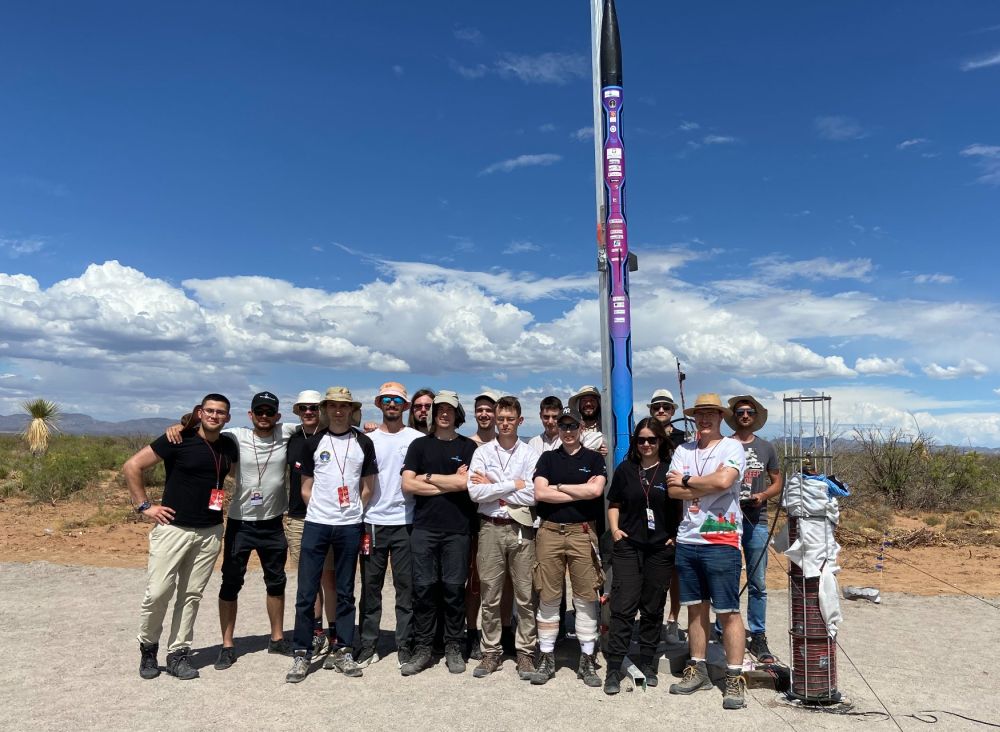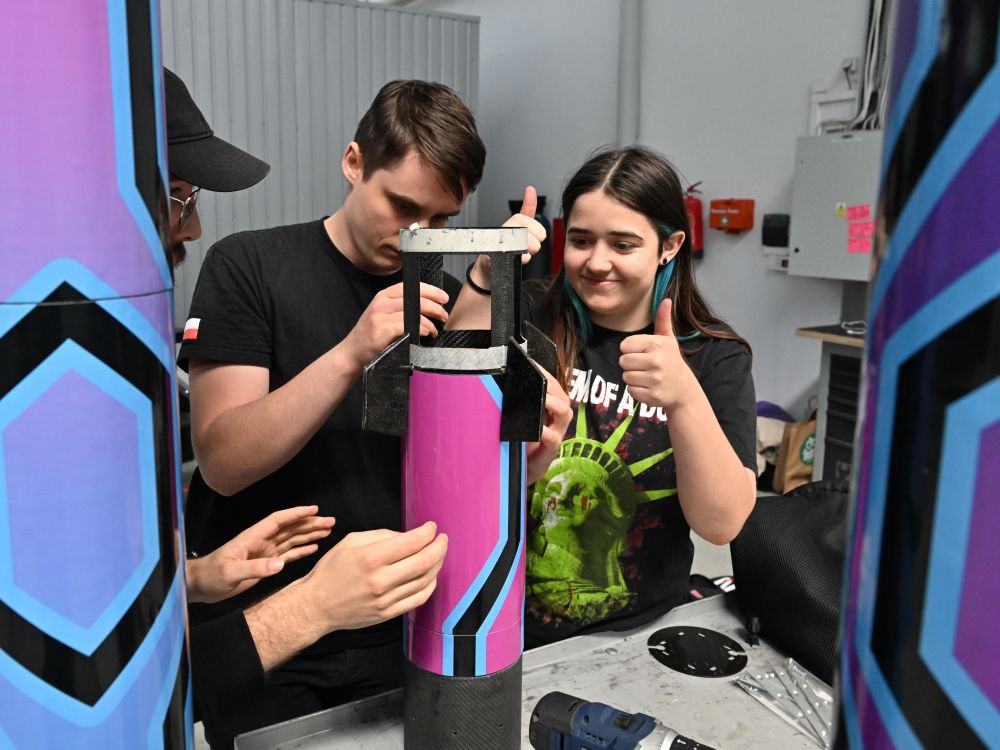YOUR BROWSER IS OUT-OF-DATE.
We have detected that you are using an outdated browser. Our service may not work properly for you. We recommend upgrading or switching to another browser.
Date: 21.07.2022 Category: general news, science/research/innovation, student activity
The results of the Spaceport America Cup competition have been announced. Our students from the PWr in Space scientific society have won second place for the 10k SRAD Hybrid category, i.e. one for hybrid fuel rockets tasked with ascending to an altitude of 10 thousand feet (over 3 thousand metres).
 The competition was held in the third week of June, but the organisers have only now reported the results, which is due to the difficulties they faced during the competition. As a result of the weather conditions (heavy downpours and thunderstorms) and paperwork issues, among other things, few teams that had come from all over the world for the competition had the chance to launch their rockets. Thus, only three teams competed in the categories for hybrid rockets, for example.
The competition was held in the third week of June, but the organisers have only now reported the results, which is due to the difficulties they faced during the competition. As a result of the weather conditions (heavy downpours and thunderstorms) and paperwork issues, among other things, few teams that had come from all over the world for the competition had the chance to launch their rockets. Thus, only three teams competed in the categories for hybrid rockets, for example.
So, the organisers of the Spaceport America Cup reported results based mainly on the scores awarded in the earlier stages of the competition.
– The judges assessed aspects of our projects including the Progress Update, i.e. the materials we’d created during the construction of the rocket, which is simplified technical documentation and the rocket construction log – says Konrad Zaprucki, President of the PWr in Space scientific society. – It was followed by the Technical Report, which is the final document describing the construction and operation of the entire rocket along with all required drawings and appendices (the judges looked at the following criteria – correctness, completeness and our analyses), and the Design Implementation, which involved the judges looking in real life at our solutions and how we implemented them. We also got points for Payload, which in the case of our rocket was a scientific load with a so-called lab-on-chip in a 3U CubeSat housing.
 In the 10k SRAD Hybrid category, the rockets were expected to climb to an altitude of 10,000 feet (approximately 3,048m) using a student-made engine powered by hybrid fuel. The Montreal Polytechnic team scored the most points and was awarded first place. The third place on the podium, however, went to the students from McGill University, also from Montreal, Canada.
In the 10k SRAD Hybrid category, the rockets were expected to climb to an altitude of 10,000 feet (approximately 3,048m) using a student-made engine powered by hybrid fuel. The Montreal Polytechnic team scored the most points and was awarded first place. The third place on the podium, however, went to the students from McGill University, also from Montreal, Canada.
The representatives of our university flew to the USA with their “Pink Panthera” rocket, which weighs 35 kg and is just over 4 m tall. They’d designed and built every component on their own – from the motor, through the electronics and communications, to the rocket,s attitude control system (i.e. the small ailerons at the top of the construction).
The Spaceport America Cup competition is jointly organised by Spaceport America – a commercial spaceport built by Virgin Galactic in the US state of New Mexico – and the Experimental Sounding Rocket Association (ESRA).
lucy
Our site uses cookies. By continuing to browse the site you agree to our use of cookies in accordance with current browser settings. You can change at any time.